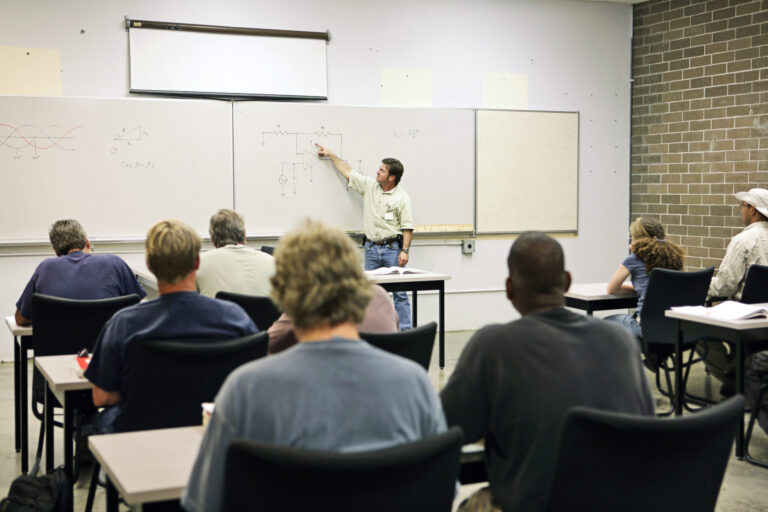There are a lot of things to consider when deciding on where to pursue higher education. While there’s no magic formula for making the selection, it’s important to identify what areas are important to YOU. Understanding the different options available to you is crucial because not everyone is made for the same type of learning environment.
When exploring your options for higher education, here are a few things to consider:
The Type of School
There are several types of higher education that you can choose to pursue. Take your time to look at all of the options. Traditional four-year colleges and universities usually offer a more common type of learning environment. Community colleges and junior colleges mimic a similar environment to a college or university, but commonly take less time to complete. Career schools and career colleges offer specialized skills or training that can allow you to complete them in two years or less; many people see these options as a way to get on the career fast track.
Each type of school has advantages and disadvantages for an individual. That’s why we want to stress the importance of exploring all the options.
The Location
Many options for higher education are available nationally and internationally. Take the time to pinpoint the right location. This is a critical decision when it comes to choosing an educational institution. Ask yourself:
- Do I want to stay close to home?
- Do I want to explore other areas?
- Do I want to commute from my current home?
- Do I want to move?
- Does the school I want offer student housing?
- If the school I want doesn’t offer student housing, will I be able to find off-campus housing?
- What is the cost of living in the area?
In order to make an informed decision, you should be considering all of these topics before committing.
The Size of the School
You should enter the search for a school with an idea in mind about how big your ideal school is. Think of size in terms of the campus and the student body. Ask yourself these questions:
- Will I need a car to get to class?
- Can I walk to class if necessary?
- Do I want to work in larger or smaller groups?
- Do I prefer a larger class size?
- Do I want a more intimate learning environment?
The Length of Program or Certifications
The time it takes to complete a program, certification, or course will vary by type of school you’ve chosen. Typically, traditional colleges and universities take four years to complete, and depending on the program and student, they may take more.
Community and junior colleges take, on average, two years to complete. Sometimes these colleges can offer technical or vocational courses, too.
Career schools and colleges vary in length depending on the certification. Oftentimes, a program can take one to two years to complete. Certification programs can range from weeks to months.
The Available Student Services
When researching schools, take a look at what student services they offer. The services can range from tutoring to career counseling. Consider the following:
- Do they offer any type of career services?
- Do they offering tutoring?
- Do they offer counseling?
- Is there a health care center?
Make a list of what is important to you, and take it with you when you’re touring schools. Ask about the services they have, and what they can do to help you with questions about services they don’t.
The Types of Student Activities
Are you interested in doing activities outside or in school? What will be available to you?
- Do you want to play a sport?
- Are you interested in having access to a fitness center?
- Are there any clubs or organizations you want to participate in?
The Cost
Higher education is an important investment. It is extremely important to know the cost of your education and how you can pay for it. When you tour a school, ask about financial services, what the annual cost is, tuition, and keep in mind that the cost will affect the time it is going to take to complete the program. Ask other questions like:
- Could I get one-on-one time with the financial aid officers?
- Can someone help me create a customized financial plan that outlines all costs?
- What other costs would I be responsible for? (Think books, room and board, food, parking, etc.)
What’s Right for You?
The short answer is this: not every school is going to be the right fit for every student. That’s why we offer this advice to students who are doing their research. While these topics don’t cover all factors in selecting a school, you need to prioritize what is important to you to find out what will be the right move. For more information on other areas to consider, check out this College Tour Guide. You can print it out and take it with you on college visits to answer questions on several topics that you should consider before making a final decision. Good luck to you and your educational endeavors!
Financial Aid is available to those who qualify. Rosedale Tech is a nonprofit Equal Opportunity Educational Institution and Employer, ACCSC Accredited Institution, and ASEEF Certified. Gainful Employment disclosure information is available at www.rosedaletech.edu.

